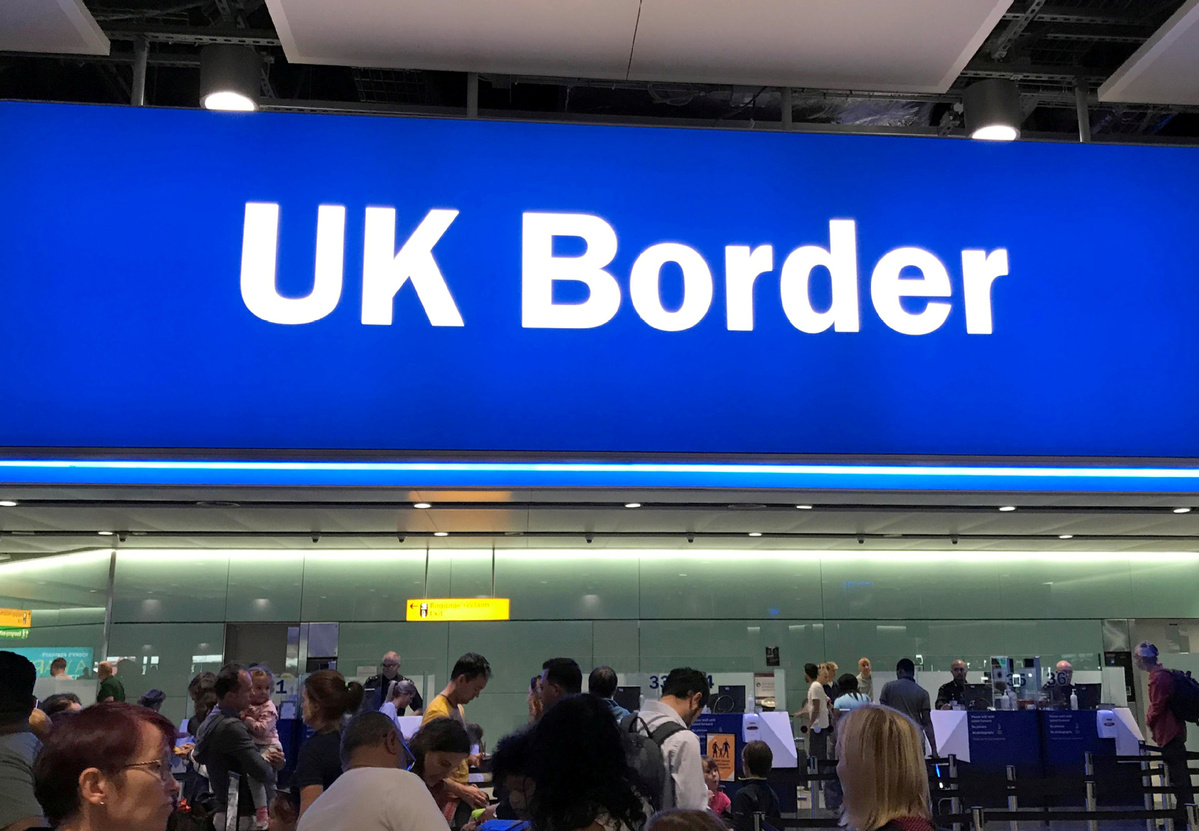Businesses face immigration challenge
By BO LEUNG in London | China Daily Global | Updated: 2020-02-25 10:05

The British government's new points-based immigration system will give businesses little time to prepare and especially hurt employers that rely on low-skilled European Union workers, according to immigration and law experts.
Now that the United Kingdom has left the EU, the Home Office has set out plans to deny visas to low-skilled workers and make it easier for high-skilled workers to move to the country.
But critics say the proposal, which is expected to take effect on Jan 1 next year, will hit the social care, agriculture, construction, and heavy industry sectors particularly hard.
Under the point-based immigration system being proposed, potential migrant workers will have to score 70 points to qualify for a visa. Speaking English and having the offer of a skilled job with an "approved sponsor" would give them 50 points.
The minimum salary required for migrants coming to work in the UK will be reduced, from 30,000 pounds ($38,000) to 25,600 pounds.
"The biggest problem is, we don't know most of the details," said Thom Brooks, a professor of law and government and the dean of Durham Law School. "The government has given a table showing; to work people must know English, have a job offer, meet an income threshold, and perhaps even have a PhD. But in the details of the statement, they admit not everyone will need a degree, no job offer is necessary, and no mention whether wealthy investors will be required to know English."
The government said it would not introduce a route for "general low-skilled or temporary work" and shift the focus of the economy away "from a reliance on cheap labor from Europe" while urging businesses to "adjust" to the end of free movement between EU countries and the UK.
"Businesses will have little time to prepare," Brooks said. "There is no Immigration Bill yet. This needs to be produced and passed. Then businesses will know what the new rules are. This may not happen until weeks before January-giving them no time and certainly no support on additional funding for training to fill the gaps."
The government said the 3.2 million EU citizens who have applied to stay in the UK could help meet labor demands, but Brooks said the UK will have problems filling the employment gap left by low-skilled workers.
"There needs to be training and support to prepare for the transition. This won't be offered and the new rules (will be) approved only weeks before their implementation. This is how not to do immigration policy," he said.
Philip Richardson, partner and head of employment law at Stephensons Solicitors LLP, said the plans will "drastically affect employers who rely upon this type of migrant worker, as this could lead to decreased productivity, income, and a lack of specialist skills".
Industry leaders have also raised concerns about staff shortages.
Kate Nicholls, UKHospitality chief executive, said: "Ruling out a temporary, low-skilled route for migration in just 10 months' time will be disastrous for the hospitality sector.
"These proposals will cut off future growth and expansion and deter investment in Britain's high streets. It will lead to reduced levels of service for customers and business closures. Hospitality is already facing an acute labor shortage, despite investing significantly in skills, training, and increasing apprenticeships for the domestic workforce," Nicholls added.
Caroline Norbury, CEO of the Creative Industries Federation, said: "In our sector, high skill levels do not always equate to high salaries and there needs to be recognition of sector-specific means of assessment, including auditions, work experience, and portfolio."
Unison, the UK's largest union, said the plans would "spell absolute disaster for the care sector".
According to the National Office of Statistics, non-British nationals made up 12 percent of the UK healthcare workforce in 2018.
"Companies and councils can't recruit enough staff from the UK so have to rely on care workers from elsewhere but even with these migrant employees, there's still way too few care workers to meet demand," said Unison assistant general secretary Christina McAnea. "Care work is highly skilled, but low paid, so falls foul of the government's arbitrary immigration threshold."
Russ Shaw, founder of Tech London Advocates and Global Tech Advocates, said the UK must provide the right environment to attract skilled workers from overseas if it is to remain an "established hub for entrepreneurs and high-growth businesses in the tech sector".
"The potential impact of a points-based system provides a timely reminder to invest in homegrown talent, but ensuring our borders are open will be crucial to success on the world stage," he said. "Talent is the main ingredient for any successful tech hub and London's thriving sector is largely due to its diverse pool of international workers. If the UK wants to remain a technological powerhouse, it must be open-the next phase of immigration policy will be critical to defining its future."
























